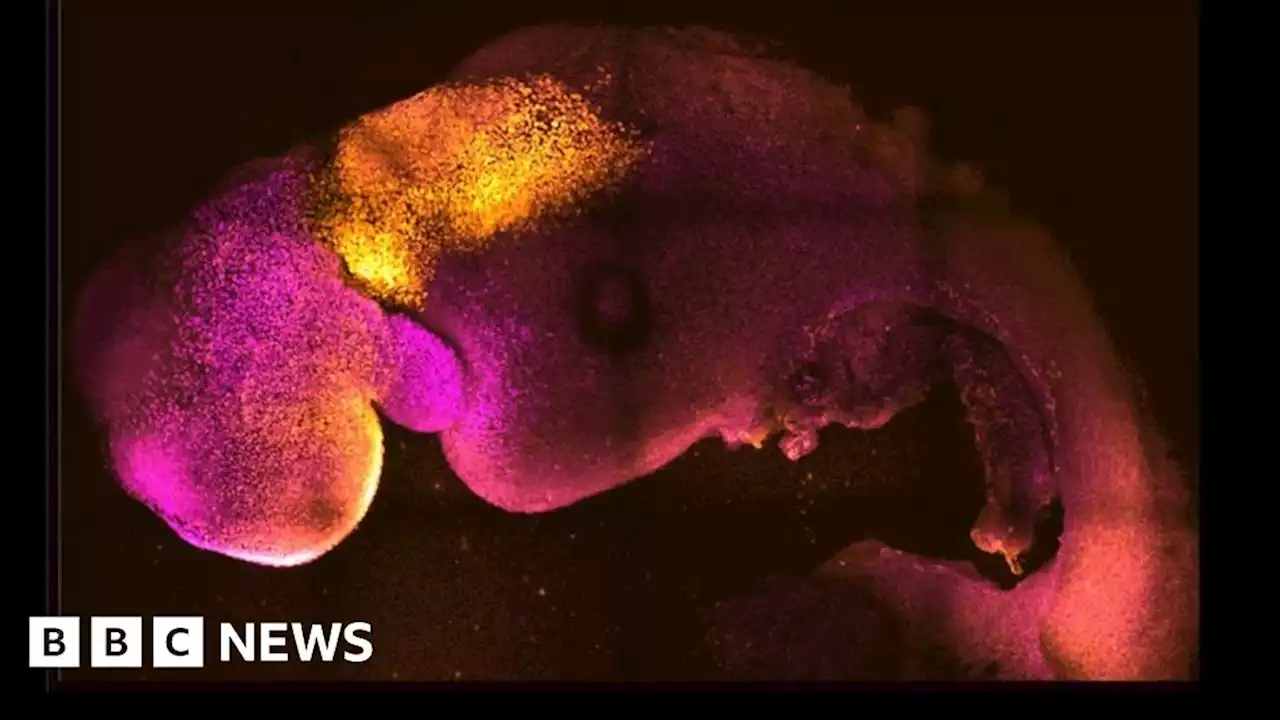Scientists say the advance could improve understanding on how organs form and why pregnancies fail.
The Cambridge team has been studying the early stages of pregnancy for the past decade but so much of it is hidden from view in the womb.
Professor Magdalena Zernicka-Goetz, professor of mammalian development and stem cell biology at Cambridge and professor of biology at Caltech, said it was "a dream come true" and could offer a glimpse into how organs are formed.Side by side, the natural and synthetic mouse embryos looked very similar after eight days
The researchers now plan to work on keeping the synthetic embryos developing for a day or two longer, which is difficult to do without creating a synthetic placenta.
We have summarized this news so that you can read it quickly. If you are interested in the news, you can read the full text here. Read more:
